We value your privacy
We use cookies to allow this site to work for you, improve your user experience, and to serve you advertising tailored to your interests. Let us know if you agree to all cookies. You can manage your preferences at any time

Your Privacy
We use cookies, which are small text files placed on your computer, to allow the site to work for you, improve your user experience, to provide us with information about how our site is used, and to deliver personalised ads which help fund our work and deliver our service to you for free.
The information does not usually directly identify you, but it can give you a more personalised web experience.
You can accept all, or else manage cookies individually. However, blocking some types of cookies may affect your experience of the site and the services we are able to offer.
You can change your cookies preference at any time by visiting our Cookies Notice page. Please remember to clear your browsing data and cookies when you change your cookies preferences. This will remove all cookies previously placed on your browser.
For more detailed information about the cookies we use, or how to clear your browser cookies data see our Cookies Notice
Manage consent preferences
These cookies are necessary for the website to function and cannot be switched off in our systems.
They are essential for you to browse the website and use its features.
You can set your browser to block or alert you about these cookies, but some parts of the site will not then work. We can’t identify you from these cookies.
These help us personalise our sites for you by remembering your preferences and settings. They may be set by us or by third party providers, whose services we have added to our pages. If you do not allow these cookies, then these services may not function properly.
These cookies allow us to count visits and see where our traffic comes from, so we can measure and improve the performance of our site. They help us to know which pages are popular and see how visitors move around the site. The cookies cannot directly identify any individual users.
If you do not allow these cookies we will not know when you have visited our site and will not be able to improve its performance for you.
These cookies may be set through our site by social media services or our advertising partners. Social media cookies enable you to share our content with your friends and networks. They can track your browser across other sites and build up a profile of your interests. If you do not allow these cookies you may not be able to see or use the content sharing tools.
Advertising cookies may be used to build a profile of your interests and show you relevant adverts on other sites. They do not store directly personal information, but work by uniquely identifying your browser and internet device. If you do not allow these cookies, you will still see ads, but they won’t be tailored to your interests.
Personalise what you see on this page.
- United States
LOOKING FOR
- Undergraduate courses
- Postgraduate courses
- CHOOSE ONE OR MORE
Popular universities
- University of Kent
- University of East Anglia UEA
- University of Chester
- Coventry University
- University of Aberdeen
- University of Portmouth
- Nottingham Trent University
- University of Sunderland
- London Metropolitan University
- London South Bank University
- University of East London
- BROWSE ALL UNIVERSITIES
Course search
Popular undergraduate courses.
- Computer Science
- LLB Bachelor of Laws
- Biomedical Sciences
- Physiotherapy
- Sports Science
Open days search
Upcoming open days.
- AECC University College
- Ravensbourne University London
- Cranfield University
- Edge Hill University
- University of Bedfordshire
- Brunel University London
Article search
Popular topics.
- League tables
- Choosing what to study
- Financing your studies
- Choosing where to study
- Career prospects
Popular articles
- How to use the league tables
- Helping you decide where and what to study
- Why use our university league tables?
- Types of degrees in the UK
- How to revise for exams: Top tips
- BROWSE ALL ADVICE
MA Creative Writing University of Birmingham

Course options
Qualification.
MA - Master of Arts
University of Birmingham
- TUITION FEES
- ENTRY REQUIREMENT
- UNIVERSITY INFO
Course summary
Short fiction, the novel, poetry, plays and screenplays: define and refine your chosen genre at the University of Birmingham, and explore genres that are new to your writing experience.
If you are a graduate with considerable experience in writing creatively and wish to proceed to a career or further study in this area, then our innovative MA in Creative Writing is for you.
The programme will allow you to develop your own work, your own voice and your own ideas with dedicated workshop time and opportunities to give and receive feedback to and from your peers. You will also benefit from professional skills training to prepare you for your encounters with the writing industry, with insights from industry professional such as editors and publishers.
The programme brings together students who work across different genres so that you can engage collaboratively across genres before specialising in screenwriting, playwriting, prose fiction or poetry for your dissertation.
Employability
Your degree will provide excellent preparation for your future career, but this can also be enhanced by a range of employability support services offered by the University and the College of Arts and Law.
The University's Careers Network provides expert guidance and activities especially for postgraduates, which will help you achieve your career goals. The College of Arts and Law also has a dedicated careers and employability team who offer tailored advice and a programme of College-specific careers events.
You will be encouraged to make the most of your postgraduate experience and will have the opportunity to:
- Receive one-to-one careers advice, including guidance on your job applications, writing your CV and improving your interview technique, whether you are looking for a career inside or outside of academia
- Meet employers face-to-face at on-campus recruitment fairs and employer presentations
- Attend an annual programme of careers fairs, skills workshops and conferences, including bespoke events for postgraduates in the College of Arts and Law
- Take part in a range of activities to demonstrate your knowledge and skills to potential employers and enhance your CV
Application deadline
31 August 2024
Module Options
Tuition fees.
- Afghanistan
- Antigua & Barbuda
- Bosnia and Herzegovina
- Burkina Faso
- Central African Republic
- Congo (Democratic Republic)
- Czech Republic
- Dominican Republic
- El Salvador
- Equatorial Guinea
- Guinea-Bissau
- Ivory Coast
- Korea DPR (North Korea)
- Liechtenstein
- Marshall Islands
- Netherlands
- New Zealand
- Northern Ireland
- Palestinian Authority
- Papua New Guinea
- Philippines
- Puerto Rico
- Republic of Ireland
- Sao Tome and Principe
- Saudi Arabia
- Sierra Leone
- Solomon Islands
- South Africa
- South Korea
- South Sudan
- St. Kitts & Nevis
- Switzerland
- Trinidad & Tobago
- Turkmenistan
- United Kingdom
- Vatican City
- Western Samoa
£ 24,120 per year
Tuition fees shown are for indicative purposes and may vary. Please check with the institution for most up to date details.
University information

University League Table
Campus address.
University of Birmingham, Edgbaston, Birmingham, Birmingham, B15 2TT, England
Subject rankings
Subject ranking.
3rd out of 50 2
Entry standards
Graduate prospects
Student satisfaction
Is this page useful?
Sorry about that..., how can we improve it, thanks for your feedback.
- Log in
- Site search
Creative Writing
Entry requirements.
The creative and critical elements will entail considered independent research and development. For this reason, we can only consider applications from applicants who have successfully completed an MA in Creative Writing, or candidates who can demonstrate composite professional experience (which includes publishing). This should be clearly demonstrated in your application. For the PhD, you must demonstrate how the research project relates to your current creative practice.
Please note: check the staff profiles prior to application to make sure that your proposal is within an area that we can support. We will be unable to support a research project which falls too far outside of our own field of research and teaching.
For the application we require:
- a detailed outline describing the planned creative project
- an outline of the potential critical enquiry and how it relates to the creative project (this can be less detailed than the description of the creative project)
- a statement about your reasons for considering a research degree
- examples of creative work
- a short resume or CV
- two references from people who are familiar with both your creative and critical abilities
The application will be reviewed by the department in several stages. If there is an interested and available supervisor we will ask you form an interview, which can happen online.
Months of entry
January, September
Course content
Work with our team of award-winning authors to develop your creative practice and its critique. Creative Writing at Birmingham is part of the Department of Film and Creative writing, and is closely aligned to the Departments of English Literature and English Language and Applied Linguistics, allowing you to benefit from our breadth of expertise.
This practice-based PhD will support you in the development of a long-form piece of creative writing, or a sequence of related works. You will also identify critical concerns and interests related to your creative practice. The final submission is divided between the creative piece and a related critical document.
Your PhD submission will usually entail:
For prose: a creative document (50 – 80%) of either long-form prose/novel, or a collection of short-form prose/stories supported by a critical paper (20–50%) of a similar length to a critical literary PhD submission (around 80,000 to 100,000 words). A novel, for example, should be somewhere between 60,000 to 80,000 words. The critical paper can be between 20,000 to 40,000 words. This would be discussed with your supervisor throughout your study.
For poetry: a creative document of collected poems or a single work with a developed critical thesis (20,000-50,000 words)
For scriptwriting (for film and live performance): a single project or a collection of multiple shorts should be of comparable length and commitment as the prose element, with a critical element between 20-50% of the overall submission.
Other creative formats (for example a script for a graphic novel) will follow the poetry or prose model, with a 20–50% split for the critical element.
The creative document will be an original work of significant, publishable quality which demonstrates an understanding of craft, genre, and form. The critical document will present a structured and developed argument that demonstrates an awareness of context, and discuss, where relevant, critical and creative processes.
You can study our Creative Writing PhD full-time or part-time, on campus or by distance learning.
Qualification, course duration and attendance options
- Campus-based learning is available for this qualification
- Distance learning is available for this qualification
Course contact details

Creative Writing - MA
Currently viewing course to start in 2024/25 Entry .
Our MA in Creative Writing helps you to develop your potential as a novelist, poet, scriptwriter or non-fiction author. It is taught by distinguished writers, with the support of a superb range of guest seminars and masterclasses by visiting authors, editors and agents, through our Institute of Creative and Critical Writing.
- Level Postgraduate Taught
- Study mode Full Time/Part Time
- Location City Centre
- Start date September 2024, January 2025
- School School of English
- Faculty Faculty of Arts, Design and Media
This course is:
Open to International Students
Our MA in Creative Writing helps you to develop your potential as a novelist, poet, scriptwriter or non-fiction author. It is taught by distinguished writers, with the support of a superb range of guest seminars and masterclasses by visiting authors, editors and agents, through our Institute of Creative and Critical Writing .
What's covered in this course?
Our MA is aimed at emerging writers, providing you with the skills and disciplines you need to advance. It’s founded upon the philosophy that writers can benefit from the same kind of training enjoyed by actors, musicians, and visual artists.
Admission to the course is based on talent, commitment and potential. Applicants submit a portfolio of writing, published or unpublished, and are then interviewed by members of the MA teaching team. Applications are considered throughout the year for entry in September of any academic year.
You’ll have the opportunity to develop your writing in the forms of your choice – be it fiction, creative non-fiction, screenwriting, writing for theatre, or poetry – and extend your range in genres that may be new to you.
You’ll attend our programme of guest speakers and public events devoted to cultivating the creative imagination, the life of ideas and the literary arts, all organised by the Institute of Creative and Critical Writing based within the School of English.
As well as receiving specialist tuition from established writers, you’ll have exclusive access to six Masterclasses each year run by a Fellow of the Institute, a member of the MA team or a guest author. These Masterclasses are based on the Conservatoire model of music tuition and involve an expert public close-reading of a volunteered student text.
You’ll study at both the home of the School of English in Millennium Point, and at our £63 million development the Curzon Building, which boasts a richly stocked University Library, a wealth of digital learning resources, a Students’ Union and a dedicated student support hub.
We are very fortunate students to have a Faculty who are pulling out all the stops to help writers of the future fulfil their writing ambitions. I appreciate the lengths that you and rest of the School of English go to, to make BCU's MA in Creative Writing course such an exciting experience. Thank you.
Ms Shirley Lloyd, MA Creative Writing student and Student Academic Leader
Why Choose Us?
- You’ll learn from distinguished writers who are experts in their field.
- Our exciting programme of guest seminars, masterclasses and public events, held by the Institute of Creative and Critical Writing.
- We have a close relationship with Writing West Midlands, the literature development agency for our region, which also runs the Birmingham Literature Festival.
- We help you prepare for a career in writing. Our graduates have an excellent record of success with their work.
- You’ll be part of an outstanding centre of creativity in the Faculty of the Arts, Design and Media.
- Our teaching staff are also expert researchers in English Language and Literature. 94% of research in English at BCU was judged to be either world-leading (4*) or internationally excellent (3*) in REF2021.
Join us for an on-campus Open Day where you'll be able to learn about this course in detail, chat to students and explore our campus.
Next Event: 29 June 2024
Entry Requirements
Essential requirements, essential requirements, international students.
Entry requirements here
If you have a qualification that is not listed, please contact us .
Fees & How to Apply
- International Student
UK students
Annual and modular tuition fees shown are applicable to the first year of study. The University reserves the right to increase fees for subsequent years of study in line with increases in inflation (capped at 5%) or to reflect changes in Government funding policies or changes agreed by Parliament. View fees for continuing students .
Starting: Sep 2024
- Apply Online
- 18 months (including Professional Placement - see below*)
Starting: Jan 2025
- 22 months (including Professional Placement - see below*)
International students

*Professional Placement option
The Professional Placement version of the course is optional and is offered as an alternative to the standard version of the course.
This will allow you to complete a credit bearing, 20 week Professional Placement as an integral part of your Master’s Degree. The purpose of the Professional Placement is to improve your employability skills which will, through the placement experience, allow you to evidence your professional skills, attitudes and behaviours at the point of entry to the postgraduate job market. Furthermore, by completing the Professional Placement, you will be able to develop and enhance your understanding of the professional work environment, relevant to your chosen field of study, and reflect critically on your own professional skills development within the workplace.
You will be responsible for finding and securing your own placement. The University, however, will draw on its extensive network of local, regional and national employers to support you in finding a suitable placement to complement your chosen area of study. You will also benefit from support sessions delivered by Careers+ as well as advice and guidance from your School.
Placements will only be confirmed following a competitive, employer-led selection process, therefore the University will not be able to guarantee placements for students who have registered for the ‘with Professional Placement’ course. All students who do not find a suitable placement or do not pass the competitive selection process will be automatically transferred back to the standard, non-placement version of the course.
You must submit a portfolio of your creative writing . This should be between 1,500-2,000 words of prose fiction or creative non-fiction, 10 pages of properly formatted screenplay, or six to eight poems. If you wish to submit your work in more than one form, you can upload a combination of any two.
Please submit your portfolio as either a Word document or PDF file.
Personal statement
You’ll need to submit a personal statement as part of your application for this course. This will need to highlight your passion for postgraduate study – and your chosen course – as well as your personal skills and experience, academic success, and any other factors that will support your application for further study.
Not sure what to include? We’re here to help – take a look at our top tips for writing personal statements and download our free postgraduate personal statement guide for further advice and examples from real students.
Course in Depth
In order to complete this course a student must successfully complete all the following CORE modules (totalling 100 credits)
Reading into Writing 40 credits
On this module you will study the creative connection between what you read and what you write. You will examine the structure, form, method, diction, and subject matter of two set texts, and their imaginative, technical or thematic relationship to works by other writers, artists and thinkers, developing your awareness of creative writing as part of a living literary tradition. The module will introduce you to research methods relevant to creative practice, and the fundamental principles of postgraduate practice-led research. You will also study the art of the book review, and its place in contemporary literary culture.
Major Project: Creative Writing 60 credits
The purpose of the module is to enable you to undertake a sustained, in-depth and theoretically informed research project exploring an area that is of personal interest to you. It is important that we can support you appropriately, so you will be guided towards choosing a research topic which is relevant to your discipline and in which your lecturers have expertise. The outcome may take the form of a written dissertation or a practical outcome with accompanying reflective, critical and contextual material. The main consideration when choosing your topic is that it must be relevant to your programme and you should consider the relevance of this topic to your future academic or professional development.
In order to complete this course a student must successfully complete at least 80 credits from the following indicative list of OPTIONAL modules.
Fiction 40 credits
In this module you will explore the fundamental techniques involved in writing fiction: creating character, establishing an immediate and concrete setting, balancing drama and exposition, managing story and plot, choreographing point of view, imagery, stylistic and structural control. You will also experiment with different ways of editing and shaping your writing. Each week, in collaboration with your fellow students, you will consider a particular element of writing craft in relation to a novel or short story, working towards a portfolio (either continuous chapters of a novel, or a collection of short stories) to be submitted at the end of the module. You will also explore practical aspects of the writing life (editing, making time to write, routes to publication, social media) through our Institute of Creative and Critical Writing.
Poetry 40 credits
This module is designed to help you develop your range and technique as a contemporary poet, reader and thinker on poetry. As well as cultivating your ability to read poetry sympathetically and critically, you will learn how to nurture the poetic imagination and what Ted Hughes called its ‘psychic disciplines’, with a view to strengthening and emboldening the intuition and sensitivity upon which poetic technique depends. You will also acquire practical knowledge of publishing and performing your own work.
Screenwriting 40 credits
The module will familiarise you with the structural principles behind the writing of screenplays. It will give you the conceptual tools to critically examine your own creative practice, and the necessary skills and knowledge of the industry to help you work towards professional screenwriting.
Creative Non-Fiction 40 credits
In this module, you will study the nature and practice of creative nonfiction, exploring the distinctive issues it raises for writers in recent published works and in your own, including the ethical considerations involved in drawing from real-life subjects as source material, the quality of truth, and the interplay between ‘fact’ and ‘fiction’. You will explore several forms of creative nonfiction, including memoir, travel writing, nature writing, auto/biography, the personal essay, the nonfiction thriller, and literary journalism, and consider the variations in style these might involve.
Core modules are guaranteed to run. Optional modules will vary from year to year and the published list is indicative only.
Professional Placement
n order to qualify for the award of MA Creative Writing with Professional Placement, a student must successfully complete all of the Level 7 modules listed above as well as the following Level 6 module:
Professional Placement (Optional) 60 credits
This module is designed to provide you with the opportunity to undertake a credit bearing, 20-week Professional Placement as an integral part of your Master’s Degree.
The purpose of the Professional Placement is to improve your employability skills which will, through the placement experience, allow you to evidence your professional skills, attitudes and behaviours at the point of entry to the postgraduate job market. Furthermore, by completing the Professional Placement, you will be able to develop and enhance your understanding of the professional work environment, relevant to your chosen field of study, and reflect critically on your own professional skills development within the workplace.
Download course specification
You’ll be given intensive exposure to the creative practice of established writers through our seminars and masterclasses, and enjoy one-to-one tuition as you work towards a larger writing project towards the end of your course.
You can choose to study either full-time over one year or part-time over two years. Throughout the course, your learning will be supported through our online learning platform.
Assessment is by portfolio, which will include a reflective commentary on your own creative practice, in addition to the writing itself.
You’ll be encouraged throughout the course to make connections with the work of other departments within the Faculty of Arts, Design and Media, to which the School of English belongs. The Faculty is the centre of an extraordinary range and concentration of creative activity, which helps to make studying at Birmingham City University an exciting and distinctive experience.
Every year, both full-time and part-time students are invited to take part in compiling, editing and producing our annual anthology of new creative writing from the School of English, which is launched at the Creative Writing Summer Show in June. As part of the professional experience we offer on the course, a student committee edits and produces the anthology, with mentoring from a leading industry editor, funded by the School.
We also encourage you to volunteer at the annual Birmingham Literature Festival and other Writing West Midlands events, so you can garner first-hand experience of the writing industry and gain useful contacts.
Employability
We believe that with its focus on language, pleasure, and the creative imagination, the study of creative writing is immensely rewarding in itself. Moreover, the ability to think and communicate clearly, imaginatively and effectively are among the most valuable skills you can have.
Postgraduates earn an average £9,000 more per year than those with just undergraduate degrees.* A postgraduate qualification can really help you stand out from the crowd in today’s competitive job market. By becoming a specialist in your field, you’ll have the chance to advance thinking in that subject and lead, rather than follow, the latest developments.
*The Sutton Trust, 2015.
Student success
Our graduates have gone on to achieve widespread acclaim for their creative writing, including the following successes:
- Shortlisted for the Michael Marks Poetry Award
- Poetry collections and pamphlets published by leading independent presses
- Founding and editing Poetry Birmingham Literary Journal
- Published in leading poetry and fiction journals
- Short fiction commissioned and broadcast on BBC Radio 4
- Shortlisted for the Mslexia Short Story Award 2022
- Published in Mslexia Best Women's Short Fiction anthology
- Written feature films that have gone on to commercial release
- Shortlisted (on multiple occasions) for the Manchester Fiction Prize
- Won the Cúirt New Writing Prize for Poetry
- Won the international section of the Hanna Greally Awards at the SiarScéal Festival
- Highly commended in the Bridport Short Story Prize, the Aesthetica Creative Writing Award, the Bristol Short Story Prize, the Roscommon Prize, the Bare Fiction Short Story Competition, the Frome Festival Short Story Competition, the Fish Publishing Prize, the Poetry Book Society Student Poetry Competition, and shortlisted for the Impress Prize for New Writers
- Won and been shortlisted for the Orwell Society Dystopian Short Story Competition
- Won places on the BFilm Micro Digital Film Studio and Talent Development Hub
- Won places on the Writing West Midlands Room 204 Writer Development Programme
International
Birmingham City University is a vibrant and multicultural university in the heart of a modern and diverse city. We welcome many international students every year – there are currently students from more than 80 countries among our student community.
The University is conveniently placed, with Birmingham International Airport nearby and first-rate transport connections to London and the rest of the UK.
Our international pages contain a wealth of information for international students who are considering applying to study here, including:
- Explore some of the good reasons why you should study here .
- Find out how to improve your language skills before starting your studies.
- Find all the information relevant to applicants from your country .
- Learn where to find financial support for your studies.
Facilities & Staff
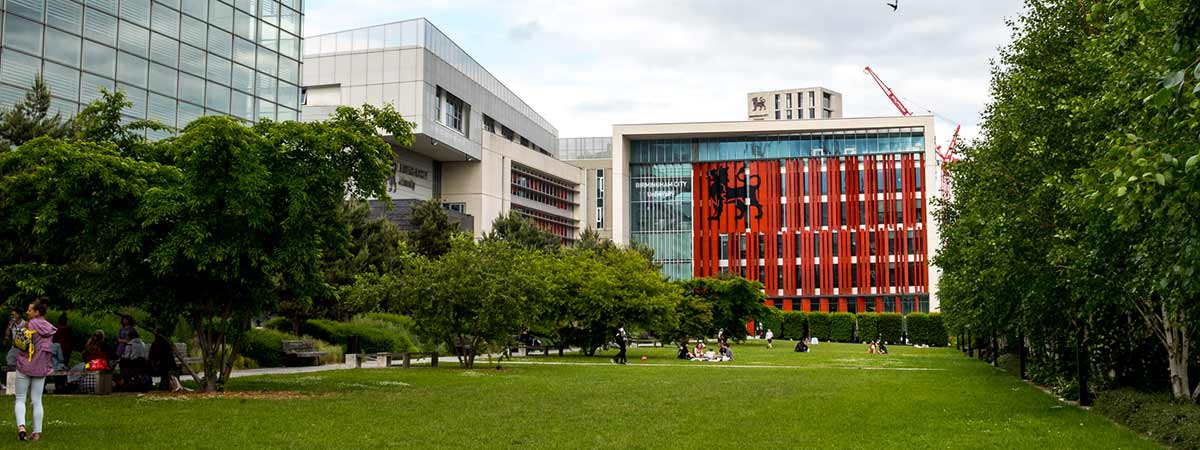
Our Facilities
When you join Birmingham City University, the first thing you will notice is the high standard of our campuses. With an investment of over £400 million across our buildings and facilities, we are committed to giving you the very best learning environment to help shape your experience.
You will study at both the home of the School of English in Millennium Point, and at our £63 million development the Curzon Building, located on our City Centre campus in the vibrant second city that is Birmingham.
Discover your bright and open learning spaces, your 24 hour (during term time) library, drama, media and radio studios, along with state of the art lecture theatres, and a variety of sociable break-out areas, all adding to your unique learning experience.

Professor Gregory Leadbetter
Professor of Poetry, Course Director of the MA in Creative Writing, Director of the Institute of Creative and Critical Writing
Gregory Leadbetter is Professor of Poetry at Birmingham City University. His research focuses on Romantic poetry and thought, the traditions to which these relate, and the history and practice of poetry more generally. His book Coleridge and the Daemonic Imagination (Palgrave Macmillan, 2011) won the University English Book Prize 2012. His poetry...
Andy Conway
Course Director for BA (Hons) Film and Screenwriting
Andy Conway is a novelist and screenwriter based in Birmingham, who graduated from the School of English in 1994 with a 1st in English Language and Literature. He teaches undergraduate courses in Screenwriting, Drama and Adaptation in the School, and also teaches Screenwriting at The National Academy of Writing, Worcester University and Newman...
Helen Cross
Helen’s novels include My Summer of Love, which became a BAFTA award-winning film, and Spilt Milk, Black Coffee, which she has recently adapted for the screen. She has written two graphic anthologies with artist Carol Adlam, most recently Women at War (2016). Her stories have appeared in various magazines and anthologies and her audio plays, which...
Professor David Roberts
Professor of English
David has taught in a variety of universities and maintained a strong interest in seventeenth-century drama and theatre. His most recent books have been about the lives of actors and writers. In 2010 his CUP biography of Thomas Betterton was shortlisted for the Theatre Library Association of America Prize. David...
UK prospective students
- Contact the enquiries team
- T: +44 (0)121 331 6295
Non-UK prospective students
- E: International enquiry form
- T: +44 (0)121 331 5389
Already applied?
- E: Contact the admissions team
Accommodation
Postgrad study
Recent searches
We won't record your recent searches as you have opted out of functional cookies. You can change this on our Manage Privacy page should you wish to.
Popular searches
- Scholarships
- Postgraduate Guide
- Student Finance
- Student Support
Suggested searches
- Life in Birmingham
- Look at Me Now
- Graduate Scholarship

Creative Writing - MA
Want to know what it's like to study this course at uni? We've got all the key info, from entry requirements to the modules on offer. If that all sounds good, why not check out reviews from real students or even book onto an upcoming open days ?
Different course options
MA - Master of Arts
City Centre Campuses
SEP-24, JAN-25
Select a course option
SEP-24, J..
Select a subject
Select a an exam type
Select student location
Course info
Entry requirements, tuition fees, latest reviews.
Our MA in Creative Writing helps you to develop your potential as a novelist, poet, scriptwriter or non-fiction author. It is taught by distinguished writers, with the support of a superb range of guest seminars and masterclasses by visiting authors, editors and agents, through our Institute of Creative and Critical Writing.
What's covered in the course?
Our MA is aimed at emerging writers, providing you with the skills and disciplines you need to advance. It’s founded upon the philosophy that writers can benefit from the same kind of training enjoyed by actors, musicians, and visual artists.
Admission to the course is based on talent, commitment and potential. Applicants submit a portfolio of writing, published or unpublished, and are then interviewed by members of the MA teaching team. Applications are considered throughout the year for entry in September of any academic year.
You’ll have the opportunity to develop your writing in the forms of your choice – be it fiction, creative non-fiction, screenwriting, writing for theatre, or poetry – and extend your range in genres that may be new to you.
You’ll attend our programme of guest speakers and public events devoted to cultivating the creative imagination, the life of ideas and the literary arts, all organised by the Institute of Creative and Critical Writing based within the School of English.
As well as receiving specialist tuition from established writers, you’ll have exclusive access to six Masterclasses each year run by a Fellow of the Institute, a member of the MA team or a guest author. These Masterclasses are based on the Conservatoire model of music tuition and involve an expert public close-reading of a volunteered student text.
You’ll study at both the home of the School of English in Millennium Point, and at our £63 million development the Curzon Building, which boasts a richly stocked University Library, a wealth of digital learning resources, a Students’ Union and a dedicated student support hub.
Professional Placement option
This course offers an optional 20-week Professional Placement, available to full-time students after the end of the Master’s year. The Professional Placement will allow you to evidence your professional skills, attitudes and behaviours at the point of entry to the postgraduate job market. Please note that an additional fee is payable if you choose to pursue the Professional Placement version of the course.
What students say
It’s a really welcoming environment. My lecturers are the nicest and are extremely helpful. The campus has a lot of resourceful available to you. Everything is very modern and.. Read more
... Read more

Module Options
For latest Entry Requirements please visit the BCU website.
Students living in
£8,925 overall cost
Students from Domestic
Sep 2024; Jan 2025: £8,925 in 2024/25.
£17,710 overall cost
Students from EU
Sep 2024; Jan 2025: £17,710 in 2024/25.
Students from International
Latest Creative Writing reviews
Review breakdown, how all students rated:.
1 Curzon Street Birmingham B4 7XG
Birmingham City University
Thinking of studying in birmingham.
Check out our
Other courses you may like

University of Hull

Middlesex University

University for the Creative Arts
Find a course
- Undergraduate
- Foundation degree
- Access & foundation
- Postgraduate
YOUR UCAS POINTS 0
Please wait
Our cookies
We use cookies for three reasons: to give you the best experience on PGS, to make sure the PGS ads you see on other sites are relevant , and to measure website usage. Some of these cookies are necessary to help the site work properly and can’t be switched off. Cookies also support us to provide our services for free, and by click on “Accept” below, you are agreeing to our use of cookies .You can manage your preferences now or at any time.
Privacy overview
We use cookies, which are small text files placed on your computer, to allow the site to work for you, improve your user experience, to provide us with information about how our site is used, and to deliver personalised ads which help fund our work and deliver our service to you for free.
The information does not usually directly identify you, but it can give you a more personalised web experience.
You can accept all, or else manage cookies individually. However, blocking some types of cookies may affect your experience of the site and the services we are able to offer.
You can change your cookies preference at any time by visiting our Cookies Notice page. Please remember to clear your browsing data and cookies when you change your cookies preferences. This will remove all cookies previously placed on your browser.
For more detailed information about the cookies we use, or how to clear your browser cookies data see our Cookies Notice
Manage consent preferences
Strictly necessary cookies
These cookies are necessary for the website to function and cannot be switched off in our systems.
They are essential for you to browse the website and use its features.
You can set your browser to block or alert you about these cookies, but some parts of the site will not then work. We can’t identify you from these cookies.
Functional cookies
These help us personalise our sites for you by remembering your preferences and settings. They may be set by us or by third party providers, whose services we have added to our pages. If you do not allow these cookies, then these services may not function properly.
Performance cookies
These cookies allow us to count visits and see where our traffic comes from, so we can measure and improve the performance of our site. They help us to know which pages are popular and see how visitors move around the site. The cookies cannot directly identify any individual users.
If you do not allow these cookies we will not know when you have visited our site and will not be able to improve its performance for you.
Marketing cookies
These cookies may be set through our site by social media services or our advertising partners. Social media cookies enable you to share our content with your friends and networks. They can track your browser across other sites and build up a profile of your interests. If you do not allow these cookies you may not be able to see or use the content sharing tools.
Advertising cookies may be used to build a profile of your interests and show you relevant adverts on other sites. They do not store directly personal information, but work by uniquely identifying your browser and internet device. If you do not allow these cookies, you will still see ads, but they won’t be tailored to your interests.
Course type
Qualification, university name, part time ma creative writing in birmingham.
2 degrees at 2 universities in Birmingham.
Customise your search
Select the start date, qualification, and how you want to study

Related subjects:
- MA Creative Writing
- MA Communications and Media
- MA Digital Media
- MA Film and Television Production
- MA Film and Video Production
- MA Media Production
- MA Multimedia
- MA Television Programme Production
- MA Television and Radio Production

- Course title (A-Z)
- Course title (Z-A)
- Price: high - low
- Price: low - high
University of Birmingham
Short fiction, the novel, poetry, plays and screenplays define and refine your chosen genre at the University of Birmingham, and explore Read more...
- 1 year Full time degree: £10,530 per year (UK)
- 2 years Part time degree: £5,265 per year (UK)
Creative Writing - MA
Birmingham city university.
Our MA in Creative Writing helps you to develop your potential as a novelist, poet, scriptwriter or non-fiction author. It is taught by Read more...
- 1 year Full time degree: £8,925 overall cost (UK)
- 18 months Full time degree: £9,820 overall cost (UK)
- 2 years Part time degree: £999 module (UK)
Course type:
- Distance learning MA
- Full time MA
- Part time MA
Qualification:
Related subjects:.
Creative Writing MA Birmingham City University
- On campus - h City Centre Campuses
- Sep 1, 2023 Full-time - 1 years
- Jan 1, 2024 Full-time - 1 years
- Sep 1, 2023 Part-time - 2 years
Key Course Facts
- Admission advice for international students
Course Description
Our MA Creative Writing helps you to develop your potential as a novelist, poet, scriptwriter or non-fiction author. It is taught by distinguished writers, with the support of a superb range of guest seminars and masterclasses by visiting authors, editors and agents, through our Institute of Creative and Critical Writing.
What's covered in the course? This postgraduate course is aimed at emerging writers, providing you with the skills and disciplines you need to advance. It’s founded upon the philosophy that writers can benefit from the same kind of training enjoyed by actors, musicians, and visual artists.
Admission to the course is based on talent, commitment and potential. Applicants submit a portfolio of writing, published or unpublished, and are then interviewed by members of the MA teaching team. Applications are considered throughout the year for entry in September of any academic year.
You’ll have the opportunity to develop your writing in the forms of your choice – be it fiction, creative non-fiction, screenwriting, writing for theatre, or poetry – and extend your range in genres that may be new to you.
You’ll attend our course of guest speakers and public events devoted to cultivating the creative imagination, the life of ideas and the literary arts, all organised by the Institute of Creative and Critical Writing based within the School of English.
As well as receiving specialist tuition from established writers, you’ll have exclusive access to six Masterclasses each year run by a Fellow of the Institute, a member of the MA team or a guest author. These Masterclasses are based on the Conservatoire model of music tuition and involve an expert public close-reading of a volunteered student text.
You’ll study at our new £63 million development, the Curzon Building, which opened in September 2015 and boasts a richly stocked University Library, a wealth of digital learning resources, a new Students’ Union and a dedicated student support hub.
Entry Requirements / Admissions
Requirements for international students / english requirements.
IELTS academic test score (similar tests may be accepted as well)
- Business Graduate Degrees/ Master Degrees
- General Requirements
Average student cost of living in the UK
London costs approx 34% more than average, mainly due to rent being 67% higher than average of other cities. For students staying in student halls, costs of water, gas, electricity, wifi are generally included in the rental. Students in smaller cities where accommodation is in walking/biking distance transport costs tend to be significantly smaller.
University Rankings
Positions of birmingham city university in top uk and global rankings., about birmingham city university.
Founded in 1853, Birmingham City University (BCU) is located in the city of Birmingham, England. The student population of this institution is made up of students from over 80 nationalities, which allows newly arrived foreign students to quickly feel welcome and at home. State-of-the-art facilities and resources await students on all courses, including the latest Engineering technology, 3D Printing studios, and Horology Workshops, just to name a few. BCU maintains a reputation for having a selective admissions process, so all applicants are recommended to prepare for their interview thoroughly.
List of 265 Bachelor and Master Courses from Birmingham City University - Course Catalogue
Student composition of Birmingham City University
Where is this programme taught.
Similar courses

- See all Countries
- United Kingdom
- Netherlands
- Switzerland
- Online Learning
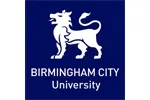
Creative Writing, MA
Birmingham City University, the United Kingdom
- Study options for Creative Writing
- About Creative Writing
Courses you may be interested in at other institutions
Other courses at birmingham city university, study options for this course, about creative writing, ma - at birmingham city university.
Please visit the Birmingham City University web site for further information.
Entry requirements for this course
Contact Birmingham City University to find course entry requirements.
Below are some suggested courses at other providers that you may also be interested in:
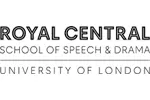
Actor Training and Coaching MA, MA, MFA
Royal Central School of Speech and Drama
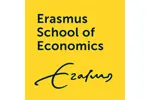
Econometrics Master
Erasmus School of Economics, Erasmus University Rotterdam
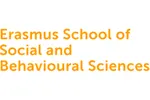
Urban Governance of Inclusive Sustainable Cities Master Degree
Erasmus School of Social and Behavioural Sciences (ESSB), Erasmus University Rotterdam

Security and Cloud Computing (SECCLO) - Erasmus Mundus Master
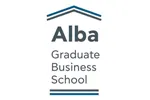
Shipping Management MSc
Alba Graduate Business School

Bachelor of Science (Electrical Engineering) - on-campus BSc
Engineering Institute of Technology
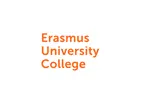
Economics and Business BSc
Erasmus University College, Erasmus University Rotterdam
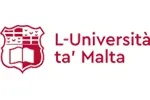
European and Comparative Law LLM
University of Malta Faculty of Laws
Postgraduate pathways and pre-masters at other institutions
If you do not meet the entry requirements for this course then consider one of these postgraduate preparation courses from another institution:
Graduate Diploma of Engineering (Mechanical)
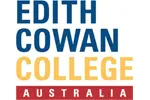
Critical Care Paramedicine
Edith Cowan University Online (ECU)
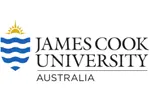
Psychology (Bridging)
James Cook University Online (JCU)
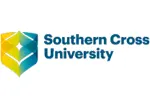
Graduate Diploma of Mental Health Nursing
Southern Cross University Online

Graduate Diploma in Data Science
SIM E-Learning

Graduate Diploma in Psychology (Advanced)

Project Management
RMIT Online
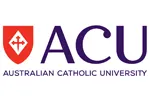
Graduate Diploma in Supervision
Australian Catholic University (ACU)
There are 431 other courses listed from Birmingham City University. A selection of these are displayed below:

Accounting and Finance BSc (Hons)
Birmingham City University
Accounting and Finance MSc
Accounting and Finance (Masters Stage) MSc
Accounting and Finance with Foundation Year BSc (Hons)
Accounting and Finance with Professional Placement Year BSc (Hons)
Adult Nursing (January) BSc (Hons)
Adult Nursing (September) BSc (Hons)
Advanced Clinical Practice MSc
Related Information
See other universities in Birmingham
Find out more about studying in the United Kingdom
Recommended pages
- Undergraduate open days
- Postgraduate open days
- Accommodation
- Information for teachers
- Maps and directions
- Sport and fitness
Join our Postgraduate Open Day - Saturday 22 June
Creative Writing PhD (On-Campus or by Distance Learning)
Annual tuition fee 2024 entry: UK: £4,778 full-time, £2,389 part-time International: £21,840 full-time; £10,920 part-time (distance learning only) More detail .
- Visit an Open Day
- Request a prospectus
- Course details
- Entry Requirements
- Employability
Work with our team of award-winning authors to develop your creative practice and its critique. Creative Writing at Birmingham is part of the Department of Film and Creative Writing, and is closely aligned to the Departments of English Literature and English Language and Applied Linguistics, allowing you to benefit from our breadth of expertise.
This practice-based PhD will support you in the development of a long-form piece of creative writing, or a sequence of related works. You will also identify critical concerns and interests related to your creative practice, situating your work within a wider literary context. The final submission is divided between the creative piece and a related critical document.
Your PhD submission will usually entail:
For prose : a creative document of either long-form prose/a novel, or a collection of short-form prose/stories supported by a critical paper. The total word count will be between 80,000 and 100,000 words, though the weighting between the two elements will vary slightly. A novel, for example, usually between 60,000 to 80,000 words. The critical paper can therefore be between 20,000 to 40,000 words.
For poetry : a creative document of collected poems or a single work of poetry supported by a critical thesis (usually 20,000-50,000 words)
For scriptwriting (film or live performance) : a single project or a collection of multiple shorts, which should be of comparable length and commitment as the prose element, again with an accompanying critical element between 20,000 to 40,000 words.
Other creative formats (for example a script for a graphic novel) will follow the above model/weightings.
The creative document will be an original work of significant, publishable quality which demonstrates a sophisticated understanding of craft, genre, and form. The critical document will present a structured and developed argument that demonstrates an awareness of literary context, and discuss - where relevant - critical and creative processes.
AHRC funding for PhD students

The University of Birmingham is part of the Midlands4Cities Doctoral Training Partnership (M4C), offering Arts and Humanities Research Council PhD studentships for campus-based programmes. These include a number of Collaborative Doctoral Award opportunities. Each studentship includes research fees, a substantial maintenance grant and additional research training support. Applications are open until 12:00 (noon), 13 January 2021.
Find out more
Scholarships for 2024 entry
The University of Birmingham is proud to offer a range of scholarships for our postgraduate programmes. With a scholarship pot worth over £2 million, we are committed to alleviating financial barriers to support you in taking your next steps.
Each scholarship has its own specific deadlines and eligibility criteria. Please familiarise yourself with the information on individual scholarship webpages prior to submitting an application.
Explore our scholarships
Virtual Open Day: Postgraduate opportunities in Creative Writing - 7 March 2020, 14:00-15:00

Join us online to watch a range of staff and student videos, and take part in our online chat where Dr Daniel Vyleta will be answering your questions about postgraduate study.
Find out more and register
You can study our Creative Writing PhD full-time or part-time, on campus or by distance learning. The College of Arts and Law is experienced in delivering high-quality distance learning to students all over the world. Find out more on our distance learning website .
At Birmingham, Postgraduate Taught and Postgraduate Research students also have the opportunity to learn graduate academic languages free of charge, to support your studies.
- Graduate School Language Skills
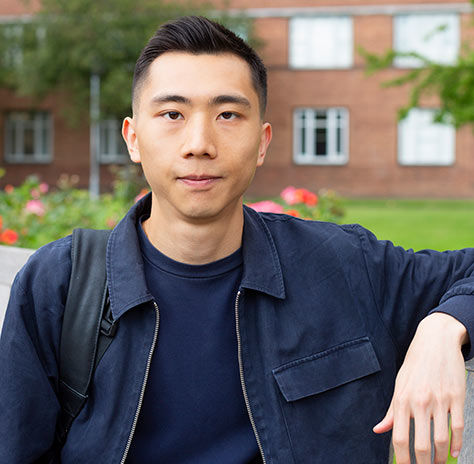
I’ve enjoyed studying at the University of Birmingham’s state of the art green campus with its spacious library and welcoming multicultural environment. The close interaction between students and supervisors has kept my research progress on track and constantly improving. Hui-Han
Why study this course?
- Work with published writers: You will be working with published writers in a thriving research-active environment across a range of disciplines, including poetry; short-story; novel writing; and screen-writing
- Develop your craft: We also encourage new and diverse forms of writing and aim to develop craft, including research and editing skills, to support your creative project. The course team are experienced in helping you to theorise your approaches to your writing and research processes.
- Creative community: You will work alongside a community of writers and scholars, which includes active researchers in all areas and disciplines. There are a number of presentations and events staged by the School and by the Creative Writing team, alongside a vibrant arts and writing community in Birmingham and the West Midlands. We encourage our students, at all levels, to be active within the community and to participate in readings, festivals, and events, both regionally and nationally.
- Preparation for teaching: The research degree is of value for writers who wish to engage with research in academia, for preparation for teaching in Higher Education, and offers dedicated time and support to complete a significant creative project.
- World-leading research: The University of Birmingham is ranked equal 10th in the UK amongst Russell Group universities in the Research Excellence Framework exercise 2021 according to Times Higher Education
The postgraduate experience
The College of Arts and Law offers excellent support to its postgraduates, from libraries and research spaces, to careers support and funding opportunities. Learn more about your postgraduate experience .
We charge an annual tuition fee. Fees for 2024 entry are as follows:
- UK: £4,778 full-time; £2,389 part-time *
- International: £21,840 full-time; £10,920 part-time (distance learning only)
The same fees apply to both campus-based and distance learning study. The distance learning programme also includes one fully-funded visit to campus in the first year of study.
The above fees quoted are for one year only; for those studying over two or more years, tuition fees will also be payable in subsequent years of your programme.
* For UK postgraduate research students the University fee level is set at Research Council rates and as such is subject to change. The final fee will be announced by Research Councils UK in spring 2024.
Eligibility for UK or international fees can be verified with Admissions. Learn more about fees for international students .
Paying your fees
Tuition fees can either be paid in full or by instalments. Learn more about postgraduate tuition fees and funding .
How To Apply
A strong application should include:
- A detailed description of the creative project (about two pages, with references, where possible, to other supporting texts)
- A description of the likely critical enquiry (which outlines the links between your creative project and the critical enquiry which will inform the development of the creative project).
- Examples of creative work (please include examples which are within your discipline, so if you want to write poetry, please include poems, if you want to write a novel, then a section of a novel, etc.,.)
- A brief statement explaining why you are interested in undertaking research with us at Birmingham. Many projects are achievable without needing a PhD, so it is helpful to see why you are interested in working within academia. It is also useful to see how this new project develops from previous projects, or relates to other creative and critical enquiries. This can be speculative.
- A decision on whether the period of study is to be full- or part-time (it is possible to adjust this once you are undertaking the research degree). If you are interested in Distance Learning, and if your application is successful, you will be asked to complete a form in which you provide details about your access to other resources and online support. Your supervisor will help you complete this prior to your being officially accepted.
Please note: The PhD is a demanding and rewarding period of advanced creative and academic independent study. It is also a terminal degree, and we require that applicants have either successfully completed a Creative Writing MA, or can demonstrate experience within their discipline. Unlike the MA, the PhD does not typically include group workshops and seminars. A strong application will demonstrate your current ability and experience within your creative discipline (so if you wish to write a film script, but have written novels, you would need some evidence of ability and knowledge in writing for film).
This is a popular course and there is a limited supervisor capacity to support doctoral research students. Our ability to support your research proposal may be dependent on the availability of a supervisor in your area of interest.
Application deadlines
Postgraduate research can start at any time during the year, but it is important to allow time for us to review your application and communicate a decision. If you wish to start in September 2024, we would recommend that you aim to submit your application and supporting documents by 1 June 2024.
If the programme has a Distance learning option then students will usually attend a residential visit in September or January, and those students wishing to attend the September residential are also encouraged to apply by 1 June 2024. The visit will take place at the end of September/beginning of October and you will receive further details once you have accepted your offer.
Six easy steps to apply for a postgraduate research course in the College of Arts and Law
Six steps to apply for our Postgraduate Research courses
Do you have an idea for an interesting research project? You can follow our six easy steps to apply to study for our postgraduate research courses . These include guidance on identifying funding opportunities and writing your research proposal .
Please also see our additional guidance for applicants to the PhD Distance Learning study mode .
Please note: While our PhD programmes are normally studied in three years full-time or six years part-time, and Masters-level research programmes one year full-time or two years part-time, many programmes have a longer length listed in course or funding applications. This is because the course length is defined as the maximum period of registration, which includes a period of supervised study plus a thesis awaited period. The maximum period of registration for a full-time PhD is four years (three years supervision plus one year thesis awaited). For a full-time Masters-level research programme, it is two years (one year supervision plus one year thesis awaited). For part-time programmes, the periods are double the full-time equivalent.
Making your application
- How to apply
To apply for a postgraduate research programme, you will need to submit your application and supporting documents online. We have put together some helpful information on the research programme application process and supporting documents on our how to apply page . Please read this information carefully before completing your application.
Our Standard Requirements
The creative and critical elements will entail considered independent research and development. For this reason, we can only consider applications from applicants who have successfully completed an MA in Creative Writing, or candidates who can demonstrate composite professional experience (which includes publishing). This should be clearly demonstrated in your application. For the PhD, you must demonstrate how the research project relates to your current creative practice.
Please note: check the staff profiles prior to application to make sure that your proposal is within an area that we can support. We will be unable to support a research project which falls too far outside of our own field of research and teaching.
For the application we require:
- a detailed outline describing the planned creative project
- an outline of the potential critical enquiry and how it relates to the creative project (this can be less detailed than the description of the creative project)
- a statement about your reasons for considering a research degree
- examples of creative work
- a short resume or CV
- two references from people who are familiar with both your creative and critical abilities
The application will be reviewed by the department in several stages. If there is an interested and available supervisor we will ask you form an interview, which can happen online.
International students
We accept a range of qualifications from different countries - use our handy guide below to see what qualifications we accept from your country.
English language requirements: standard language requirements apply for this course - IELTS 6.5 with no less than 6.0 in any band. If you are made an offer of a place to study and you do not meet the language requirement, you have the option to enrol on our English for Academic Purposes Presessional Course - if you successfully complete the course, you will be able to fulfil the language requirement without retaking a language qualification.
International Requirements
Applicants for postgraduate research programmes should hold a Bachelors degree and a Masters degree, with a GPA of 14/20 from a recognised institution to be considered. Applicants with lower grades than this may be considered on an individual basis.
Holders of the Licenciado or an equivalent professional title from a recognised Argentinian university, with a promedio of at least 7.5, may be considered for entry to a postgraduate degree programme. Applicants for PhD degrees will normally have a Maestria or equivalent
Applicants who hold a Masters degree will be considered for admission to PhD study.
Holders of a good four-year Diplomstudium/Magister or a Masters degree from a recognised university with a minimum overall grade of 2.5 will be considered for entry to postgraduate research programmes.
Students with a good 5-year Specialist Diploma or 4-year Bachelor degree from a recognised higher education institution in Azerbaijan, with a minimum GPA of 4/5 or 80% will be considered for entry to postgraduate taught programmes at the University of Birmingham.
For postgraduate research programmes applicants should have a good 5-year Specialist Diploma (completed after 1991), with a minimum grade point average of 4/5 or 80%, from a recognised higher education institution or a Masters or “Magistr Diplomu” or “Kandidat Nauk” from a recognised higher education institution in Azerbaijan.
Applicants for postgraduate research programmes should hold a Bachelors degree and a Masters degree, with a GPA of 3.0/4.0 or 75% from a recognised institution to be considered. Applicants with lower grades than this may be considered on an individual basis.
Applicants for postgraduate research programmes should hold a Bachelors degree and will usually be required to have completed a Masters degree, with a CGPA of 3.0-3.3/4.0 or higher for 2:1 equivalency from a recognised institution to be considered for entry. Applicants with lower grades than this may be considered on an individual basis.
Students who hold a Masters degree from the University of Botswana with a minimum GPA of 3.0/4.0 or 3.5/5.0 (70%/B/'very good') will be considered for Postgraduate Diplomas and Masters degrees.
Please note 4-year bachelor degrees from the University of Botswana are considered equivalent to a Diploma of Higher Education. 5-year bachelor degrees from the University of Botswana are considered equivalent to a British Bachelor (Ordinary) degree.
Students who have completed a Masters degree from a recognised institution will be considered for PhD study.
A Licenciatura or Bacharelado degree from a recognised Brazilian university:
- A grade of 7.5/10 for entry to programmes with a 2:1 requirement
- A grade of 6.5/10for entry to programmes with a 2:2 requirement
Holders of a good Bachelors degree with honours (4 to 6 years) from a recognised university with a upper second class grade or higher will be considered for entry to taught postgraduate programmes. Holders of a good Masters degree from a recognised university will be considered for entry to postgraduate research programmes.
Holders of a good post-2001 Masters degree from a recognised university will be considered for entry to postgraduate research programmes.
Students with a minimum average of 14 out of 20 (or 70%) on a 4-year Licence, Bachelor degree or Diplôme d'Etudes Superieures de Commerce (DESC) or Diplôme d'Ingénieur or a Maîtrise will be considered for Postgraduate Diplomas and Masters degrees.
Holders of a bachelor degree with honours from a recognised Canadian university may be considered for entry to a postgraduate degree programme. A GPA of 3.0/4, 7.0/9 or 75% is usually equivalent to a UK 2.1.
Holders of the Licenciado or equivalent Professional Title from a recognised Chilean university will be considered for Postgraduate Diplomas and Masters degrees. Applicants for PhD study will preferably hold a Magister degree or equivalent.
Students with a bachelor’s degree (4 years minimum) may be considered for entry to a postgraduate degree programme. However please note that we will only consider students who meet the entry guidance below. Please note: for the subject areas below we use the Shanghai Ranking 2022 (full table) , Shanghai Ranking 2023 (full table) , and Shanghai Ranking of Chinese Art Universities 2023 .
需要具备学士学位(4年制)的申请人可申请研究生课程。请根据所申请的课程查看相应的入学要求。 请注意,中国院校名单参考 软科中国大学排名2022(总榜) , 软科中国大学排名2023(总榜) ,以及 软科中国艺术类高校名单2023 。
Business School - MSc programmes (excluding MBA)
商学院硕士课程(MBA除外)入学要求
School of Computer Science – all MSc programmes 计算机学院硕士课程入学要求
College of Social Sciences – courses listed below 社会科学 学院部分硕士课程入学要求 MA Education (including all pathways) MSc TESOL Education MSc Public Management MA Global Public Policy MA Social Policy MA Sociology Department of Political Science and International Studies 全部硕士课程 International Development Department 全部硕士课程
All other programmes (including MBA) 所有其他 硕士课程(包括 MBA)入学要求
Please note:
- Borderline cases: We may consider students with lower average score (within 5%) on a case-by-case basis if you have a relevant degree and very excellent grades in relevant subjects and/or relevant work experience. 如申请人均分低于相应录取要求(5%以内),但具有出色学术背景,优异的专业成绩,以及(或)相关的工作经验,部分课程将有可能单独酌情考虑。
- Please contact the China Recruitment Team for any questions on the above entry requirements. 如果您对录取要求有疑问,请联系伯明翰大学中国办公室 [email protected]
Holders of the Licenciado/Professional Title from a recognised Colombian university will be considered for our Postgraduate Diploma and Masters degrees. Applicants for PhD degrees will normally have a Maestria or equivalent.
Holders of a good bachelor degree with honours (4 to 6 years) from a recognised university with a upper second class grade or higher will be considered for entry to taught postgraduate programmes. Holders of a good Masters degree from a recognised university will be considered for entry to postgraduate research programmes.
Holders of a good Bacclaureus (Bachelors) from a recognised Croatian Higher Education institution with a minimum overall grade of 4.0 out of 5.0, vrlo dobar ‘very good’, or a Masters degree, will be considered for entry to postgraduate research programmes.
Holders of a Bachelors degree(from the University of the West Indies or the University of Technology) may be considered for entry to a postgraduate degree programme. A Class II Upper Division degree is usually equivalent to a UK 2.1. For further details on particular institutions please refer to the list below. Applicants for PhD level study will preferably hold a Masters degree or Mphil from the University of the West Indies.
Applicants for postgraduate research programmes should hold a good Bachelors degree from a recognised institution with a minimum overall grade of 6.5 out of 10, or a GPA of 3 out of 4, and will usually be required to have completed a good Masters degree to be considered for entry to postgraduate research programmes. Applicants with lower grades than this may be considered on an individual basis.
Holders of a good Bakalár from a recognised Czech Higher Education institution with a minimum overall grade of 1.5, B, velmi dobre ‘very good’ (post-2004) or 2, velmi dobre ‘good’ (pre-2004), or a good post-2002 Magistr (Masters), will be considered for entry to postgraduate research programmes.
Applicants for postgraduate research programmes should hold a good Bachelors degree from a recognised institution with a minimum overall grade of 7-10 out of 12 (or 8 out of 13) or higher for 2:1 equivalence and will usually be required to have completed a good Masters/ Magisterkonfereus/Magister Artium degree to be considered for entry to postgraduate research programmes. Applicants with lower grades than this may be considered on an individual basis.
Holders of the Licenciado or an equivalent professional title from a recognised Ecuadorian university may be considered for entry to a postgraduate degree programme. Grades of 70% or higher can be considered as UK 2.1 equivalent. Applicants for PhD level study will preferably hold a Magister/Masterado or equivalent qualification, but holders of the Licenciado with excellent grades can be considered.
Applicants for postgraduate research programmes should hold a Bachelors degree and a Masters degree, with a GPA of 3.0/4.0 or 75% from a recognised institution. Applicants with lower grades than this may be considered on an individual basis.
Holders of a good Bakalaurusekraad from a recognised university with a minimum overall grade of 4/5 or B, or a good one- or two-year Magistrikraad from a recognised university, will be considered for entry to postgraduate research programmes.
Students who hold a Masters degree with very good grades (grade B, 3.5/4 GPA or 85%) will be considered for Postgraduate Diplomas and Masters degrees.
Holders of a good Kandidaatti / Kandidat (old system), a professional title such as Ekonomi, Diplomi-insinööri, Arkkitehti, Lisensiaatti (in Medicine, Dentistry and Vetinary Medicine), or a Maisteri / Magister (new system), Lisensiaatti / Licenciat, Oikeustieteen Kandidaatti / Juris Kandidat (new system) or Proviisori / Provisor from a recognised Finnish Higher Education institution, with a minimum overall grade of 2/3 or 4/5, will be considered for entry to postgraduate research programmes.
Applicants for postgraduate research programmes should hold a should hold a Bachelors degree and will usually be required to have completed a Masters/Maîtrise with a minimum overall grade of 13 out of 20, or a Magistère / Diplôme d'Etudes Approfondies / Diplôme d'Etudes Supérieures Specialisées / Mastère Specialis, from a recognised French university or Grande École to be considered for entry. Applicants with lower grades than this may be considered on an individual basis.
Holders of a Magister Artium, a Diplom or an Erstes Staatsexamen from a recognised university with a minimum overall grade of 2.5, or a good two-year Lizentiat / Aufbaustudium / Zweites Staatsexamen or a Masters degree from a recognised university, will be considered for entry to postgraduate research programmes.
Students who hold a Bachelor degree from a recognised institution will be considered for Postgraduate Diplomas and Masters degrees. Most taught Masters programmes require a minimum of an upper second class degree (2.1) with a minimum GPA of at least 3.0/4.0 or 3.5/5.0 Students who have completed a Masters degree from a recognised institution will be considered for PhD study.
Applicants for postgraduate research programmes should hold a good four-year Ptychio (Bachelor degree) with a minimum overall grade of 6.5 out of 10, from a recognised Greek university (AEI), and will usually be required to have completed a good Metaptychiako Diploma Eidikefsis (Masters degree) from a recognised institution to be considered for entry. Applicants with lower grades than this may be considered on an individual basis.
4-year Licenciado is deemed equivalent to a UK bachelors degree. A score of 75 or higher from Universidad de San Carlos de Guatemala (USAC) can be considered comparable to a UK 2.1, 60 is comparable to a UK 2.2. Private universities have a higher pass mark, so 80 or higher should be considered comparable to a UK 2.1, 70 is comparable to a UK 2.2
The Hong Kong Bachelor degree is considered comparable to British Bachelor degree standard. Students with bachelor degrees awarded by universities in Hong Kong may be considered for entry to one of our postgraduate degree programmes.
Students with Masters degrees may be considered for PhD study.
Holders of a good Alapfokozat / Alapképzés or Egyetemi Oklevel from a recognised university with a minimum overall grade of 3.5, or a good Mesterfokozat (Masters degree) or Egyetemi Doktor (university doctorate), will be considered for entry to postgraduate research programmes.
Applicants for postgraduate research programmes should hold a Bachelors degree and will usually be required to have completed a Masters degree, with a 60% or higher for 2:1 equivalency from a recognised institution to be considered for entry. Applicants with lower grades than this may be considered on an individual basis.
Holders of the 4 year Sarjana (S1) from a recognised Indonesian institution will be considered for postgraduate study. Entry requirements vary with a minimum requirement of a GPA of 2.8.
Applicants for postgraduate research programmes should hold a Bachelors degree and a Masters degree, with a score of 14/20 or 70% from a recognised institution to be considered. Applicants with lower grades than this may be considered on an individual basis.
Applicants for postgraduate research programmes should hold a Bachelors degree and will usually be required to have completed a Masters degree from a recognised institution, with 100 out of 110 or higher for 2:1 equivalency from a recognised institution to be considered for entry. Applicants with lower grades than this may be considered on an individual basis.
Students who hold the Maitrise, Diplome d'Etude Approfondies, Diplome d'Etude Superieures or Diplome d'Etude Superieures Specialisees will be considered for Postgraduate Diplomas and Masters degrees (14-15/20 or Bien from a well ranked institution is considered comparable to a UK 2.1, while a score of 12-13/20 or Assez Bien is considered comparable to a UK 2.2).
Students with a Bachelor degree from a recognised university in Japan will be considered for entry to a postgraduate Masters degree provided they achieve a sufficiently high overall score in their first (Bachelor) degree. A GPA of 3.0/4.0 or a B average from a good Japanese university is usually considered equivalent to a UK 2:1.
Students with a Masters degree from a recognised university in Japan will be considered for PhD study. A high overall grade will be necessary to be considered.
Students who have completed their Specialist Diploma Мамаң дипломы/Диплом специалиста) or "Magistr" (Магистр дипломы/Диплом магистра) degree (completed after 1991) from a recognised higher education institution, with a minimum GPA of 2.67/4.00 for courses requiring a UK lower second and 3.00/4.00 for courses requiring a UK upper second class degree, will be considered for entry to postgraduate Masters degrees and, occasionally, directly for PhD degrees. Holders of a Bachelor "Bakalavr" degree (Бакалавр дипломы/Диплом бакалавра) from a recognised higher education institution, with a minimum GPA of 2.67/4.00 for courses requiring a UK lower second and 3.00/4.00 for courses requiring a UK upper second class degree, may also be considered for entry to taught postgraduate programmes.
Students who hold a Bachelor degree from a recognised institution will be considered for Postgraduate Diplomas and Masters degrees. Most taught Masters programmes require a minimum of an upper second class degree (2.1) with a minimum GPA of at least 3.0/4.0 or 3.5/50
Holders of a good Postgraduate Diploma (professional programme) from a recognised university or institution of Higher Education, with a minimum overall grade of 7.5 out of 10, or a post-2000 Magistrs, will be considered for entry to postgraduate research programmes.
Applicants for postgraduate research programmes should hold a Bachelors degree and a Masters degree, with a score of 16/20 or 80% from a recognised institution to be considered. Applicants with lower grades than this may be considered on an individual basis.
Holders of a Bachelors degree from a recognised university in Libya will be considered for postgraduate study. Holders of a Bachelors degree will normally be expected to have achieved score of 70% for 2:1 equivalency or 65% for 2:2 equivalency. Alternatively students will require a minimum of 3.0/4.0 or BB to be considered.
Holders of a good pre-2001 Magistras from a recognised university with a minimum overall grade of 8 out of 10, or a good post-2001 Magistras, will be considered for entry to postgraduate research programmes
Holders of a good Bachelors degree from a recognised Luxembourgish Higher Education institution with a minimum overall grade of 16 out of 20, or a Diplôme d'Études Supérieures Spécialisées (comparable to a UK PGDip) or Masters degree from a recognised Luxembourgish Higher Education institution will be considered for entry to postgraduate research programmes.
Students who hold a Masters degree will be considered for Postgraduate Diplomas and Masters degrees (70-74% or A or Marginal Distinction from a well ranked institution is considered comparable to a UK 2.1, while a score of 60-69% or B or Bare Distinction/Credit is considered comparable to a UK 2.2).
Holders of a Bachelors degree from a recognised Malaysian institution (usually achieved with the equivalent of a second class upper or a grade point average minimum of 3.0) will be considered for postgraduate study at Diploma or Masters level.
Holders of a good Bachelors degree from the University of Malta with a minimum grade of 2:1 (Hons), and/or a Masters degree, will be considered for entry to postgraduate research programmes.
Students who hold a Bachelor degree (Honours) from a recognised institution (including the University of Mauritius) will be considered for Postgraduate Diplomas and Masters degrees. Most taught Masters programmes require a minimum of an upper second class degree (2:1).
Students who hold the Licenciado/Professional Titulo from a recognised Mexican university with a promedio of at least 8 will be considered for Postgraduate Diplomas and Masters degrees.
Students who have completed a Maestria from a recognised institution will be considered for PhD study.
Applicants for postgraduate research programmes should hold a Bachelors degree, licence or Maîtrise and a Masters degree, with a score of 14/20 or 70% from a recognised institution to be considered. Applicants with lower grades than this may be considered on an individual basis.
Students with a good four year honours degree from a recognised university will be considered for postgraduate study at the University of Birmingham. PhD applications will be considered on an individual basis.
Applicants for postgraduate research programmes should hold a Bachelors degree and will usually be required to have completed a Masters degree, with 60-74% or higher for 2:1 equivalency from a recognised institution to be considered for entry. Applicants with lower grades than this may be considered on an individual basis.
Holders of a good Doctoraal from a recognised Dutch university with a minimum overall grade of 7 out of 10, and/or a good Masters degree, will be considered for entry to postgraduate research programmes.
Students who hold a Bachelor degree (minimum 4 years and/or level 400) from a recognised institution will be considered for Postgraduate Diplomas and Masters degrees. Most taught Masters programmes require a minimum of an upper second class degree (2.1) with a minimum GPA of at least 3.0/4.0 or 3.5/5.0
Applicants for postgraduate research programmes should hold a good Bachelors degree from a recognised institution with a minimum GPA of B/Very Good or 1.6-2.5 for a 2.1 equivalency, and will usually be required to have completed a good Masters, Mastergrad, Magister. Artium, Sivilingeniør, Candidatus realium or Candidatus philologiae degree to be considered for entry to postgraduate research programmes. Applicants with lower grades than this may be considered on an individual basis.
Applicants for postgraduate research programmes should hold a Bachelors degree and will usually be required to have completed a Masters degree, with a CGPA of 3.0/4 or higher for 2:1 equivalency from a recognised institution to be considered for entry. Applicants with lower grades than this may be considered on an individual basis.
Holders of a Bachelors degree from a recognised university in the Palestinian Territories will be considered for postgraduate study. Holders of Bachelors degree will normally be expected to have achieved a GPA of 3/4 or 80% for 2:1 equivalency or a GPA of 2.5/4 or 70% for 2:2 equivalency.
Holders of the Título de Licenciado /Título de (4-6 years) or an equivalent professional title from a recognised Paraguayan university may be considered for entry to a postgraduate degree programme. Grades of 4/5 or higher can be considered as UK 2.1 equivalent. The Título Intermedio is a 2-3 year degree and is equivalent to a HNC, it is not suitable for postgraduate entry but holders of this award could be considered for second year undergraduate entry or pre-Masters. Applicants for PhD level study will preferably hold a Título de Maestría / Magister or equivalent qualification, but holders of the Título/Grado de Licenciado/a with excellent grades can be considered.
Holders of the Licenciado, with at least 13/20 may be considered as UK 2.1 equivalent. The Grado de Bachiller is equivalent to an ordinary degree, so grades of 15+/20 are required. Applicants for PhD level study will preferably hold a Título de Maestría or equivalent qualification.
Holders of a good pre-2001 Magister from a recognised Polish university with a minimum overall grade of 4 out of 5, dobry ‘good’, and/or a good Swiadectwo Ukonczenia Studiów Podyplomowych (Certificate of Postgraduate Study) or post-2001 Magister from a recognised Polish university with a minimum overall grade of 4.5/4+ out of 5, dobry plus 'better than good', will be considered for entry to postgraduate research programmes.
Holders of a good Licenciado from a recognised university, or a Diploma de Estudos Superiores Especializados (DESE) from a recognised Polytechnic Institution, with a minimum overall grade of 16 out of 20, and/or a good Mestrado / Mestre (Masters) from a recognised university, will be considered for entry to postgraduate research programmes.
Applicants for postgraduate research programmes should hold a good Bachelors degree from a recognised Romanian Higher Education institution with a minimum overall grade of 8 out of 10, and will usually be required to have completed a Masters degree/Diploma de Master/Diploma de Studii Academice Postuniversitare (Postgraduate Diploma - Academic Studies) or Diploma de Studii Postuniversitare de Specializare (Postgraduate Diploma - Specialised Studies) to be considered for entry. Applicants with lower grades than this may be considered on an individual basis.
Holders of a good Диплом Специалиста (Specialist Diploma) or Диплом Магистра (Magistr) degree from recognised universities in Russia (minimum GPA of 4.0) will be considered for entry to taught postgraduate programmes/PhD study.
Students who hold a 4-year Bachelor degree with at least 16/20 or 70% will be considered for Postgraduate Diplomas and Masters degrees.
Students who hold a Maitrise, Diplome d'Etude Approfondies,Diplome d'Etude Superieures or Diplome d'Etude Superieures Specialisees will be considered for Postgraduate Diplomas and Masters degrees. A score of 14-15/20 or Bien from a well ranked institution is considered comparable to a UK 2.1, while a score of 12-13/20 or Assez Bien is considered comparable to a UK 2.2
Students who hold a Bachelor (Honours) degree from a recognised institution with a minimum GPA of 3.0/4.0 or 3.5/5.0 (or a score of 60-69% or B+) from a well ranked institution will be considered for most our Postgraduate Diplomas and Masters degrees with a 2:1 requirement.
Students holding a good Bachelors Honours degree will be considered for postgraduate study at Diploma or Masters level.
Holders of a good three-year Bakalár or pre-2002 Magister from a recognised Slovakian Higher Education institution with a minimum overall grade of 1.5, B, Vel’mi dobrý ‘very good’, and/or a good Inžinier or a post-2002 Magister from a recognised Slovakian Higher Education institution will be considered for entry to postgraduate research programmes.
Holders of a good Diploma o pridobljeni univerzitetni izobrazbi (Bachelors degree), Diplomant (Professionally oriented first degree), Univerzitetni diplomant (Academically oriented first degree) or Visoko Obrazovanja (until 1999) from a recognised Slovenian Higher Education institution with a minimum overall grade of 8.0 out of 10, and/or a good Diploma specializacija (Postgraduate Diploma) or Magister (Masters) will be considered for entry to postgraduate research programmes.
Students who hold a Bachelor Honours degree (also known as Baccalaureus Honores / Baccalaureus Cum Honoribus) from a recognised institution will be considered for Postgraduate Diplomas and Masters degrees. Most Masters programmes will require a second class upper (70%) or a distinction (75%).
Holders of a Masters degree will be considered for entry to postgraduate research programmes.
Holders of a Bachelor degree from a recognised South Korean institution (usually with the equivalent of a second class upper or a grade point average 3.0/4.0 or 3.2/4.5) will be considered for Masters programmes.
Holders of a good Masters degree from a recognised institution will be considered for PhD study on an individual basis.
Applicants for postgraduate research programmes should hold a Bachelors degree and will usually be required to have completed a Masters degree, with 7 out of 10 or higher for 2:1 equivalency from a recognised institution to be considered for entry. Applicants with lower grades than this may be considered on an individual basis.
Applicants for postgraduate research programmes should hold a Bachelors degree and will usually be required to have completed a Masters degree, with 60-74% or a CGPA 3.30/4.0 or higher for 2:1 equivalency from a recognised institution to be considered for entry. Applicants with lower grades than this may be considered on an individual basis.
Holders of a good Kandidatexamen (Bachelors degree) or Yrkesexamen (Professional Bachelors degree) from a recognised Swedish Higher Education institution with the majority of subjects with a grade of VG (Val godkänd), and/or a good Magisterexamen (Masters degree), International Masters degree or Licentiatexamen (comparable to a UK Mphil), will be considered for entry to postgraduate research programmes.
Holders of a good "PostGraduate Certificate" or "PostGraduate Diploma" or a Masters degree from a recognised Swiss higher education institution (with a minimum GPA of 5/6 or 8/10 or 2/5 (gut-bien-bene/good) for a 2.1 equivalence) may be considered for entry to postgraduate research programmes.
Applicants for postgraduate research programmes should hold a Bachelors degree and a Masters degree, with a GPA of 3.0/4.0, 3.5/5 or 75% from a recognised institution to be considered. Applicants with lower grades than this may be considered on an individual basis.
Holders of a good Bachelor degree (from 75% to 85% depending upon the university in Taiwan) from a recognised institution will be considered for postgraduate Masters study. Holders of a good Masters degree from a recognised institution will be considered for PhD study.
Students who hold a Bachelor degree from a recognised institution will be considered for Postgraduate Diplomas and Masters degrees. Most taught Masters programmes require a minimum of an upper second class degree (2.1) Students who have completed a Masters degree from a recognised institution will be considered for PhD study.
Holders of a good Masters degree from a recognised institution will be considered for entry to our postgraduate research programmes.
Holders of a good Masters degree or Mphil from a recognised university will be considered for entry to postgraduate research programmes.
Students with a Bachelors degree from the following universities may be considered for entry to postgraduate programmes:
- Ateneo de Manila University - Quezon City
- De La Salle University - Manila
- University of Santo Tomas
- University of the Philippines - Diliman
Students from all other institutions with a Bachelors and a Masters degree or relevant work experience may be considered for postgraduate programmes.
Grading Schemes
1-5 where 1 is the highest 2.1 = 1.75 2.2 = 2.25
Out of 4.0 where 4 is the highest 2.1 = 3.0 2.2 = 2.5
Letter grades and percentages 2.1 = B / 3.00 / 83% 2.2 = C+ / 2.5 / 77%
Holders of a postdoctoral qualification from a recognised institution will be considered for PhD study. Students may be considered for PhD study if they have a Masters from one of the above listed universities.
Holders of a Lisans Diplomasi with a minimum grade point average (GPA) of 3.0/4.0 from a recognised university will be considered for postgraduate study at Diploma or Masters level.
Holders of a Yuksek Diplomasi from a recognised university will be considered for PhD study.
Students who hold a Bachelor degree from a recognised institution will be considered for Postgraduate Diplomas and Masters degrees. Most Masters programmes will require a second class upper (2.1) or GPA of 3.5/5.0
Applicants for postgraduate research programmes should hold a good Bachelors degree / Диплом бакалавра (Dyplom Bakalavra), Диплом спеціаліста (Specialist Diploma) or a Dyplom Magistra from a recognised Ukrainian higher education institution with a minimum GPA of 4.0/5.0, 3.5/4, 8/12 or 80% or higher for 2:1 equivalence and will usually be required to have completed a good Masters degree to be considered for entry to postgraduate research programmes. Applicants with lower grades than this may be considered on an individual basis.
The University will consider students who hold an Honours degree from a recognised institution in the USA with a GPA of:
- 2.8 GPA (on a 4.0 scale) for entry to programmes with a 2:2 requirement
- 3.2 GPA (on a 4.0 scale) for entry to programmes with a 2:1 requirement
Please note that some subjects which are studied at postgraduate level in the USA, eg. Medicine and Law, are traditionally studied at undergraduate level in the UK.
Holders of the Magistr Diplomi (Master's degree) or Diplomi (Specialist Diploma), awarded by prestigious universities, who have attained high grades in their studies will be considered for postgraduate study. Holders of the Fanlari Nomzodi (Candidate of Science), where appropriate, will be considered for PhD study.
Holders of the Licenciatura/Título or an equivalent professional title from a recognised Venezuelan university may be considered for entry to a postgraduate degree programme. Scales of 1-5, 1-10 and 1-20 are used, an overall score of 70% or equivalent can be considered equivalent to a UK 2.1. Applicants for PhD level study will preferably hold a Maestria or equivalent qualification
Holders of a Bachelors degree from a recognised Vietnamese institution (usually achieved with the equivalent of a second class upper or a grade point average minimum GPA of 7.0 and above) will be considered for postgraduate study at Diploma or Masters level. Holders of a Masters degree (thac si) will be considered for entry to PhD programmes.
Students who hold a Masters degree with a minimum GPA of 3.5/5.0 or a mark of 2.0/2.5 (A) will be considered for Postgraduate Diplomas and Masters degrees.
Students who hold a good Bachelor Honours degree will be considered for Postgraduate Diplomas and Masters degrees.
The Department is home to a number of award-winning writers and our research into the aesthetic, historical and theoretical contexts of literature is complemented by our strong traditions in creative practice as research.
Please contact a staff member working in your area of interest in the first instance: Find a supervisor in Creative Writing .
The University of Birmingham is the top choice for the UK's major employers searching for graduate recruits, according to The Graduate Market 2024 report .
Your degree will provide excellent preparation for your future career, but this can also be enhanced by a range of employability support services offered by the University and the College of Arts and Law.
The University's Careers Network provides expert guidance and activities especially for postgraduates, which will help you achieve your career goals. The College of Arts and Law also has a dedicated careers and employability team who offer tailored advice and a programme of College-specific careers events.
You will be encouraged to make the most of your postgraduate experience and will have the opportunity to:
- Receive one-to-one careers advice, including guidance on your job applications, writing your CV and improving your interview technique, whether you are looking for a career inside or outside of academia
- Meet employers face-to-face at on-campus recruitment fairs and employer presentations
- Attend an annual programme of careers fairs, skills workshops and conferences, including bespoke events for postgraduates in the College of Arts and Law
- Take part in a range of activities to demonstrate your knowledge and skills to potential employers and enhance your CV
What’s more, you will be able to access our full range of careers support for up to 2 years after graduation.
Over the past five years, more than 96% of Creative Writing postgraduates were in work and/or further study six months after graduation. Postgraduates in the Department of Film and Creative Writing develop a range of skills including: the ability to lead and participate in discussions; critical thinking, and an appreciation of different theoretical contexts; the ability to develop opinions and new ideas; and an aptitude for thinking and working creatively with others. While some graduates go on to careers in related industries - such as writing, media and television - others have used their transferable skills to pursue roles such as advertising, teaching, and in the heritage and cultural sectors.
- Online chat events
- Ask our students

IMAGES
VIDEO
COMMENTS
Breadth and depth of study - at Birmingham we focus on the craft of writing and editing, combining academic with creative skills, and an artistic focus with industry insights. Learn from our permanent staff of published authors - Anna Metcalfe, a short story writer and novelist, who has been named among Granta's 2023 cohort for the Best of ...
If you are a graduate with considerable experience in writing creatively and wish to proceed to a career or further study in this area, then our innovative MA in Creative Writing is for you. The programme will allow you to develop your own work, your own voice and your own ideas with dedicated workshop time and opportunities to give and receive ...
Course summary. Short fiction, the novel, poetry, plays and screenplays: define and refine your chosen genre at the University of Birmingham, and explore genres that are new to your writing experience. If you are a graduate with considerable experience in writing creatively and wish to proceed to a career or further study in this area, then our ...
You will write a 12,000-word portfolio of creative work in the form of a screenplay, excerpt of a novel, a collection of short fiction or a collection of poetry (600 lines). This will be accompanied by a 3,000-word essay placing your work in a critical and creative context, with reference to your development as a writer over the course of the MA.
Entry requirements. We ask for a 2:1 Honours degree, or equivalent, preferably in English and/or Creative Writing, but other disciplines will be considered. Applicants should also have considerable experience of writing creatively. All prospective students must also submit a sample of written work as part of the online application process.
About. If you are a graduate with considerable experience in writing creatively and wish to proceed to a career or further study in this area, then the innovative Creative Writing programme from University of Birmingham is for you. University of Birmingham. Birmingham , England , United Kingdom. Top 0.5% worldwide.
QS World University Rankings. 91. Degree MA. Study Level Masters. Duration 12 months. Request More Details. Compare. Shortlist. Learn more about Creative Writing MA Program including the program highlights, fees, scholarships, events and further course information.
Creative Writing at Birmingham . If you have completed an undergraduate degree containing some creative writing, or are an ... career or further study in this area, our Creative Writing MA programme is for you. The programme offers extensive workshop opportunities alongside professional training for becoming a working writer. Throughout ...
The University of Birmingham's Creative Writing program is designed for exploration. I've written pieces across different genres and styles, from poems and short stories to satirical articles and feature-length screenplays. Sampling various writing styles has helped me hone my own voice and expand the depth of my writing.".
Creative Writing at Birmingham is part of the Department of Film and Creative writing, and is closely aligned to the Departments of English Literature and English Language and Applied Linguistics, allowing you to benefit from our breadth of expertise. This practice-based PhD will support you in the development of a long-form piece of creative ...
Define and refine your discipline at Birmingham: short fiction, the novel, poetry, scripts. If you have completed an undergraduate degree containing some creative writing or are an English graduate with considerable experience in writing creatively and wish to proceed to a career of further study in this area then our innovative MA in Creative ...
Creative Writing - MA. Currently viewing course to start in 2024/25 Entry . Our MA in Creative Writing helps you to develop your potential as a novelist, poet, scriptwriter or non-fiction author. It is taught by distinguished writers, with the support of a superb range of guest seminars and masterclasses by visiting authors, editors and agents ...
About. The MA in Creative Writing at Birmingham City University helps you to develop your potential as a novelist, poet, scriptwriter or non-fiction author. The Creative Writing - MA is provided by Birmingham City University. Birmingham City University. Birmingham , England , United Kingdom. Top 6% worldwide. Studyportals University Meta Ranking.
Creative Writing - MA Birmingham City University. Student rating This is the overall rating calculated by averaging all live reviews for this uni on Whatuni. ( 4.0) ... Our MA in Creative Writing helps you to develop your potential as a novelist, poet, scriptwriter or non-fiction author. It is taught by distinguished writers, with the support ...
Zainab Rao - MA Creative Writing. MA Creative Writing student Zainab Rao says that she has really enjoyed the interactive nature of the course. We found out more about her experience as a postgraduate student at the University of Birmingham. Why did you choose to study MA Creative Writing at the University of Birmingham?
Find a Part time MA Creative Writing postgraduate degree in Birmingham, using the UK's most comprehensive search engine for postgrads. ... Part time MA Creative Writing in Birmingham. 2 degrees at 2 universities in Birmingham. NEW SEARCH. MA Communications and Media Creative Writing Birmingham Part time.
£7900 Tuition (UK) £16300 Tuition (International) Tuition fees per year for Creative Writing MA at Birmingham City University UCAS course summary. Source: UCAS Feb 9, 2023 Duration: 1 years - Full-time : Campus: On campus - City Centre Campuses Degree: Master of Arts, MA: Subject:
The service offers guidance on writing assignments and dissertations for your MA/MSc programme with individual support from an academic writing advisor via tutorials, email and the provision of online materials. International students can access support for English Language development and skills through the Birmingham International Academy (BIA).
About Creative Writing, MA - at Birmingham City University. Please visit the Birmingham City University web site for further information. Entry requirements for this course. Contact Birmingham City University to find course entry requirements. Courses you may be interested in at other institutions.
Our undergraduate BA English Literature with Creative Writing degree is for you if you want to: Learn from bestselling authors and industry experts - including 2021 Forward Poetry Prize winner Professor Luke Kennard and one of Granta magazine's 2023 best young novelists Dr Anna Metcalfe. Personalise your degree - read and write about the writing and authors that mean most to you: our ...
You can study our Creative Writing PhD full-time or part-time, on campus or by distance learning. The College of Arts and Law is experienced in delivering high-quality distance learning to students all over the world. Find out more on our distance learning website. At Birmingham, Postgraduate Taught and Postgraduate Research students also have ...